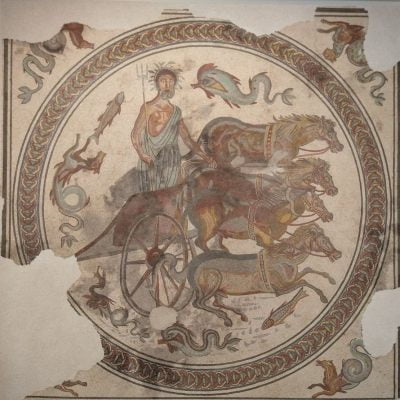Neptune (Neptunus), the god of the seas, oceans, clouds, springs and earthquakes. Equivalent to the Greek Poseidon. He was the son of Saturn, brother of Jupiter and Pluto.
The main attribute of Neptune was a trident, while the means of transport were a dolphin and a horse. When the sea is sufficiently rough, the foam on the crests of the waves is called the Sea Cresteds, a comparison to refer to the windblown mane of speeding steeds. The Romans in the initial period of their statehood were not very brilliant sailors, so Neptune was not particularly praised. It gained its proper and due power with the growth of the Romans’ naval power and the development of their fleet, both military and commercial, which was a consequence of the enormous demand for maritime services.
Neptune had its holiday on July 23, the so-called Neptunalia, in the period of the greatest droughts. He was worshipped with a female deity called Salacja or Venilia.
He was the keeper of horses and races (Neptune Equester). His temples were close to the races, so one was on Circus Flaminus, the other on the Field of Mars and the most late on the Campus Martius.







